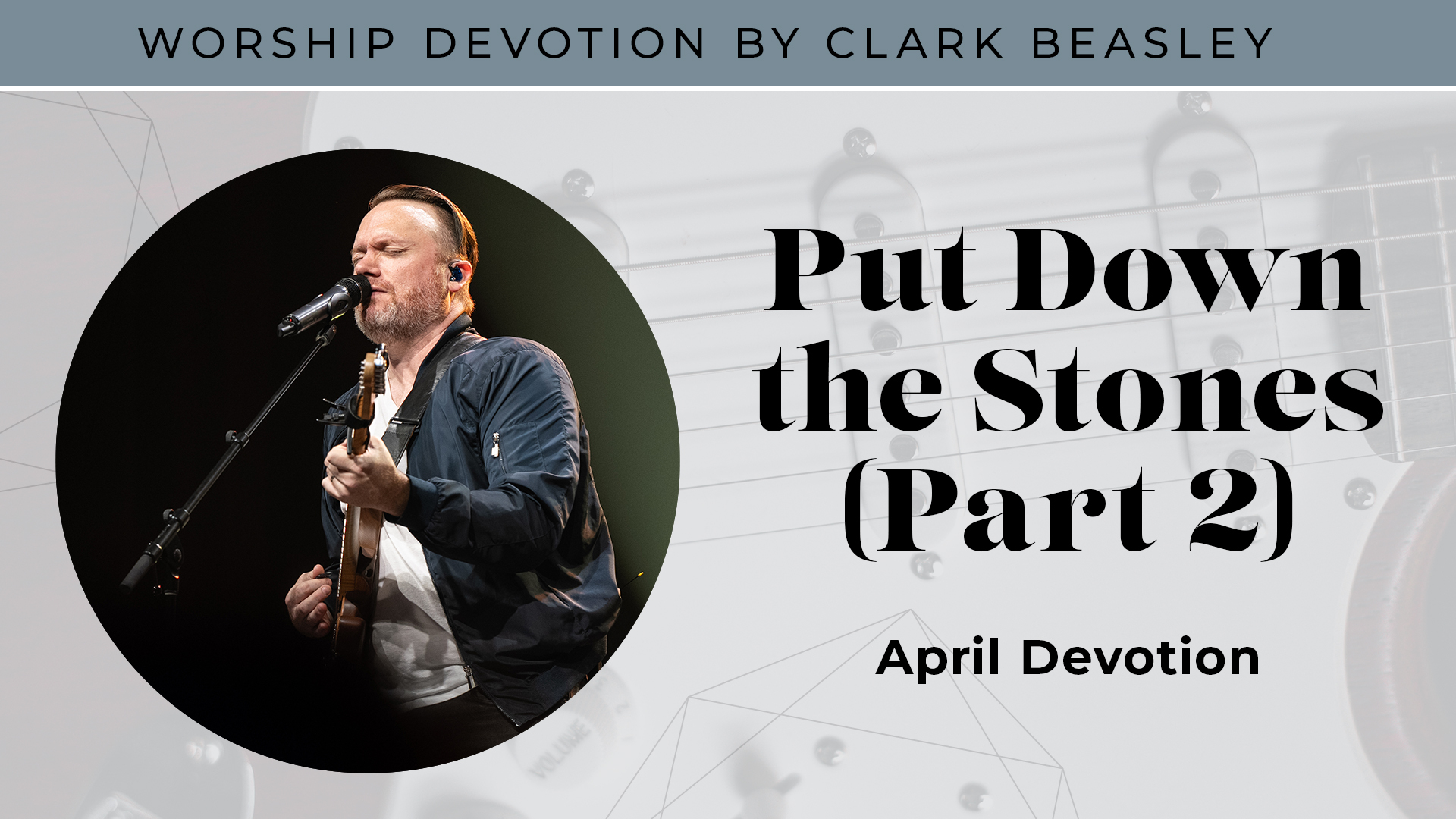
Jesus returned to the Mount of Olives, but early the next morning he was back again at the Temple. A crowd soon gathered, and he sat down and taught them. As he was speaking, the teachers of religious law and the Pharisees brought a woman who had been caught in the act of adultery. They put her in front of the crowd.
“Teacher,” they said to Jesus, “this woman was caught in the act of adultery. The law of Moses says to stone her. What do you say?” They were trying to trap him into saying something they could use against him, but Jesus stooped down and wrote in the dust with his finger. They kept demanding an answer, so he stood up again and said, “All right, but let the one who has never sinned throw the first stone!” Then he stooped down again and wrote in the dust.
When the accusers heard this, they slipped away one by one, beginning with the oldest, until only Jesus was left in the middle of the crowd with the woman. Then Jesus stood up again and said to the woman, “Where are your accusers? Didn’t even one of them condemn you?” “No, Lord,” she said. And Jesus said, “Neither do I. Go and sin no more.” John 8:1-11 (NLT)
There are three perspectives in this story that I would love for you to consider:
-The woman (we discussed this in last month’s newsletter)
-The crowd
-The teachers of the law and the Pharisees
The crowd, so accustomed to moving to the beat of the religious drum, was looking to see what spectacle the Pharisees and law teachers would bring out for everyone’s amusement today. And Jesus was there - a teacher that many have come to hear once again. But this woman was caught in the very act of adultery. I know that Jesus has been known to come down on the religious leaders, but surely He will be stern with this woman. Surely He will pick up a stone as well. But instead, with one phrase, He instantly puts everyone on equal footing. Instantly, everyone knew they had no defense. They can’t pretend they don’t also have sin. What were they feeling? Scholars can’t agree on what Jesus might have been writing in the dirt, but I like to think that maybe He was writing individual sins that each one in the crowd had committed, calling them all out on their private, yet shameful, actions and decisions.
The Pharisees and teachers, eager to catch Jesus in a condemning mistake, thought for sure they had Him now. He was known for His grace and for keeping company with sinners, but surely He can’t write this one off. Surely we’ve got Him this time. But, wait, what is He writing in the sand about? And all at once, it’s over. He won’t be trapped today.
Throughout the Gospels, every time Jesus speaks, it is always polarizing. His words always leave only two options—follow Him or don’t. There is no middle ground. What was Jesus asking of the people in the crowd that day? I believe it was to follow Him in the way of mercy.
It would be another woman, caught in the act of adultery, that would brave the scowls of judgment and the condemnation of the religious elite to say thank you to Jesus. In Luke 7, to give those who didn’t think they needed a Savior a chance to follow Him, Jesus tells a parable that ends with this lesson - those who have been forgiven much love much.
The path to love and forgiveness that Jesus modeled in this story is paved with a recognition of how much we have been forgiven and loved. We did not deserve it, and yet God poured out His forgiveness and love on us. We can do the same with His Spirit living inside us. I love this prayer by Lauren Fortenberry - may it be your prayer whenever you’re faced with someone hard to love…
“When their words cut like a knife. God, help me put down the stones.
When their actions break my heart. God, help me put down the stones.
When the blood from their own wounds covers me. God, help me put down the stones.
Because You have called me to more. More grace. More forgiveness. More peace.
But I can’t get there if my hands are casting stones and pointing fingers.
So, God, give me the strength to let it go.
And pray for them instead. Your way is higher.
Guide my hands and my feet in Your will this day.”